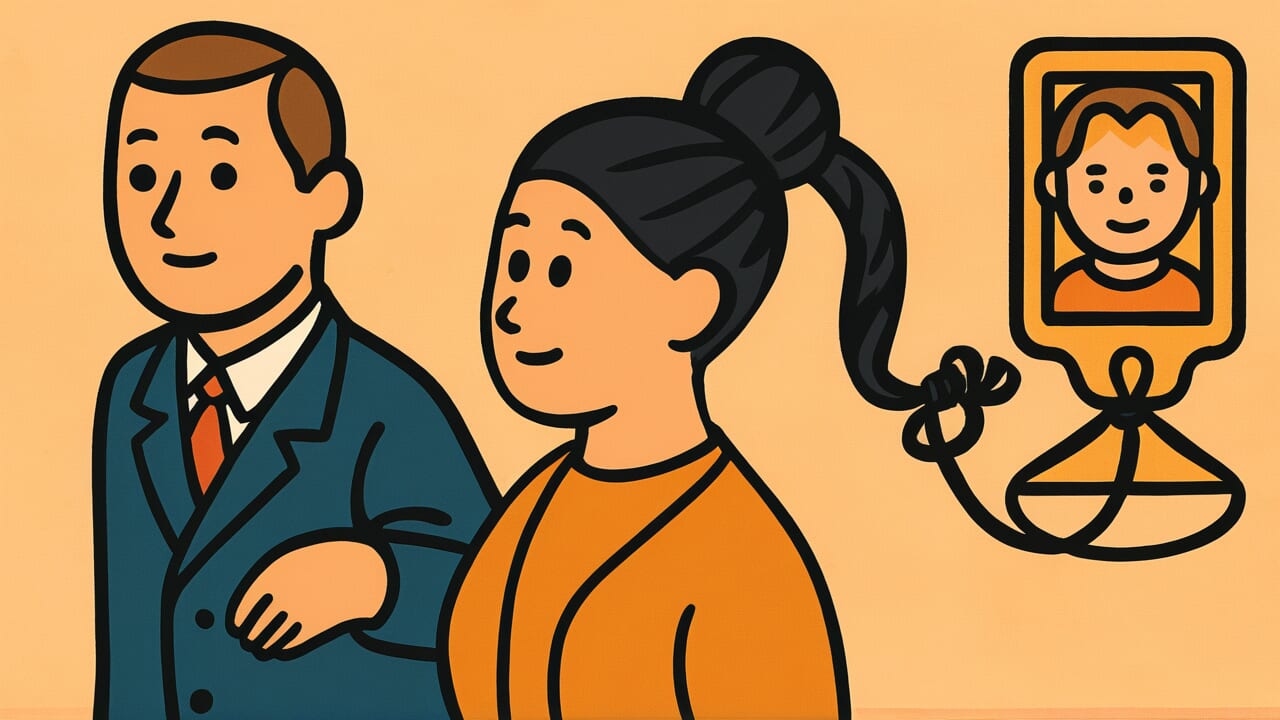How to Read “The hairdresser doesn’t do their own hair”
Kamiyui kami yuwazu
Meaning of “The hairdresser doesn’t do their own hair”
“The hairdresser doesn’t do their own hair” means that people can handle others’ affairs skillfully, but surprisingly struggle with their own.
It shows a human trait where even experts with specialized skills and knowledge find it unexpectedly difficult to apply those abilities to themselves.
This proverb is used when someone neglects their own needs despite being an expert in that very field.
For example, a nutritionist eating irregularly, or an organizing consultant unable to tidy their own home.
Even today, this phrase is used for self-reflection or to show understanding toward others.
It contains a tolerant perspective that recognizes everyone has this aspect. We shouldn’t demand perfection from ourselves or others.
Origin and Etymology
The exact literary origin of this proverb is unclear. However, it likely emerged from the craftsman culture of the Edo period.
A hairdresser was like a modern beautician. In Edo towns, they were specialists who styled many people’s hair beautifully.
What makes this proverb interesting is its use of a specific profession as an example.
Hairdressers styled dozens of people’s hair daily and had the skill to create magnificent hairstyles.
But when it came to their own hair, they had to work backwards while looking in a mirror. Things didn’t go as smoothly.
It was physically difficult, and there was also the challenge of viewing oneself objectively.
People in the Edo period saw an essential human quality in the hairdresser’s situation.
Doctors unable to cure their own illnesses, or carpenters postponing repairs on their own homes were common sights in towns back then.
This phrase born from craftsmen’s daily lives wasn’t about technical problems. It was a sharp observation about the essence of human psychology.
Interesting Facts
The hairdressing profession flourished greatly during the Edo period. Male hairdressers were called “tokoya” while those specializing in women were called “kamiyui.”
Female hairdressers especially worked as mobile specialists. They visited samurai residences and merchant houses early in the morning to style women’s hair.
A similar proverb is “konya no shirobakama” (the dyer’s white hakama).
It means the dyer beautifully dyes others’ kimono but wears undyed white hakama themselves. This also expresses the human tendency to neglect one’s own affairs.
Usage Examples
- He’s a life counseling professional but can’t solve his own problems – truly “the hairdresser doesn’t do their own hair”
- My room is messy even though I’m an organizing consultant – please forgive me, it’s a case of “the hairdresser doesn’t do their own hair”
Universal Wisdom
“The hairdresser doesn’t do their own hair” contains a fundamental human contradiction.
Why can we give accurate advice to others, yet fail to apply that same wisdom to ourselves?
Behind this lies the problem of objectivity. When viewing others’ problems, we maintain emotional distance and can analyze situations calmly.
But with our own issues, emotions, desires, excuses, and fears cloud our natural judgment.
Doctors underestimate their own symptoms. Lawyers take their own contracts lightly. This psychology is exactly why.
There’s a deeper reason too. Humans have a belief that “I’m special.”
We understand general principles but think “my case is different.” This self-centeredness may be a basic human trait rooted in survival instinct.
This proverb has been passed down not because it merely points out flaws. It shows depth of human understanding.
No one is perfect. Everyone lives with this contradiction. Accepting this fact is the first step toward being kind to ourselves and others.
When AI Hears This
The hairdresser is an expert at styling others’ hair but cannot do their own.
Expressing this situation mathematically reveals an interesting structure. With hairdressers A and B, if self-styling ability equals zero, the payoff without cooperation is 0.
But if they style each other’s hair, both gain a payoff of 1. This is a classic cooperative game in game theory.
What’s important here is the asymmetry inherent in the hairdressing profession.
Ordinary people can style their own hair poorly, but hairdressers cannot perfectly finish their blind spot (the back of the head) precisely because their skills are high.
In other words, there’s a paradoxical relationship where higher specialization increases dependence on others. This is the division of labor in modern society itself.
Doctors cannot perform surgery on themselves. Lawyers cannot defend themselves calmly in their own trials.
What’s more interesting is that this structure forces cooperation.
In the prisoner’s dilemma, there’s temptation to betray. But for hairdressers, physical completion alone is impossible. The option to “betray” doesn’t exist from the start.
This suggests that for cooperation to evolve, structural design of interdependence matters more than punishment. Necessity creates cooperation.
Lessons for Today
This proverb teaches modern people the importance of self-kindness and humility.
More people share perfect lives on social media. Everyone feels pressure to “have it all together.” In this era, these words carry even more weight.
Even experts and advisors surprisingly struggle with their own affairs. This isn’t shameful or a sign of incompetence. It’s natural as a human being.
With this understanding, we can move forward without excessive self-blame, doing what we can.
Practically, training yourself to “view your own situation as someone else’s” is effective.
Think about what advice you’d give a friend in the same situation. Write in a journal and reflect objectively. Ask trusted people for honest opinions.
These strategies help gradually regain objectivity about yourself.
And most importantly, extend the same kindness to others.
When someone fails in their own area of expertise, it’s an expression of their humanity. Relationships where we acknowledge each other’s imperfections are truly rich human connections.



Comments